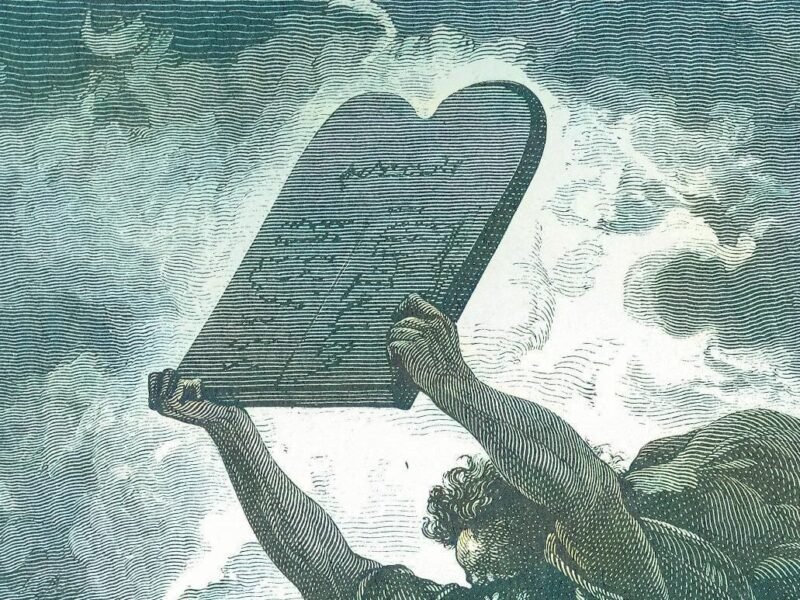Rogationtide rolls over us. An ancient call and reminder for us “to ask” (rogare in Latin, from which we derive the word, “Rogation”). Or as our Lord tells us, “Ask and it shall be given you.” (Matthew 7:7, KJV). Our Lord’s words should remind us to ask and ask in faith, as the Apostle James encourages. (“But let him ask in faith, with no doubting, for the one who doubts is like a wave of the sea that is driven and tossed by the wind.” James 1:6, ESV). We moderns are commonly cast about the waves of our desires, worries, and worldly fads. When we do ask, it is not in faith, not with prayer, and rarely with fasting, so we end up demanding from God instead of asking Him with the faith of a child.
The Rogation Days are long forgotten in today’s barren wasteland posing as Christianity. Many of Christ’s followers believe Easter is “over” – as though Eastertide could ever end this side of Christ’s resurrection! Other Anglicans, Lutherans, Reformed, and Roman Catholics aimlessly drift from Easter to Ascension without any thought about what is happening this week during the transition. We are without excuse, we are inheritors of the old ways. Too many ignore our inheritance and deceive ourselves while patting ourselves on the back for “walking the ancient way,” yet all the while disregarding the old landmarks of our forefathers in the faith. In other words, we claim the ancient Western Christian path whilst ignoring the Rogation Days and disregarding the faith of our fathers.
Our ignorance can be corrected by returning to the prayer book. Ironically, for Anglicans, it is not the queen of the classic prayerbooks that has provided us the deepest resource to remind us about Rogation Days. The 1662 Book of Common Prayer mentions the days in the Kalendar without further context. The American 1928 edition, on the other hand, provides a single collect, epistle, and gospel to cover all the Rogation Days, in addition to unique lessons for Morning and Evening Prayer for each of the three Rogation Days. The 2019 Anglican Church in North America’s Book of Common Prayer begs us to mark the Rogation Days by providing two collects and sets of readings (again to be spread across the three Rogation Days). Alas, but will we keep them? Or will we allow the world to move the ancient landmarks and yield ever more of our lives and our hearts to the distractions of the flesh?
No, take up the Rogation Days. Do not yield an inch more of the parish’s boundaries to the wolves of the world. Take the boundaries back. Beat back the world. Pull up the weeds of your soul around the ancient landmarks and redeem the time by marking the time. Pray, yes even without ceasing.
I find Rogationtide especially meaningful this year as my grandparents’ property will be sold during Rogationtide. Two weeks ago I beat the bounds of my grandparents’ property. I walked it one last time before it was sold, in order to memorize it. The property is already in my bones and in my soul because I have walked this property since I was a young boy. Yet the old property deserved to be walked one last time to anchor the memories. Indeed, I know the soul of my hometown and I feel her roots because as a mere child and continuing into adulthood, I give into the wanderlust of my soul to explore the dirt roads, follow the creek and tributaries, explore the fallen-in houses, walk the railroad tracks, and enter the Christ-haunted woods of Helena. Even before I was Anglican, I was beating the bounds of the parish. We all need to beat the bounds of our souls and our communities to be reminded that Christ saved us for His purposes, for His Kingdom, for His Church, and His glory.
“Beating the bounds” is an ancient tradition. It involves walking as a congregation from ancient landmark to landmark by way of reminder of the Mosaic covenant prohibition to not move, remove, or cheat one’s neighbor by moving their property markers. The procession is a time of prayer – to ask (rogare) – God for His bountiful provision and blessing upon the land that gives us food and wine. We moderns scoff at the need for such a reminder – but therein lies our problem. If something is not “needed” then it is disregarded. The modern mind disregards the need for God’s provision and instead renders the planting, growing, and harvest as cold-calculated scientific processes. Such thinking is foolhardy and at our own risk. It is a failure to acknowledge the source of all life, the rainmaker, and the Lord of the harvest. Rogationtide prayers remind us we need the One who planted Eden to help us as we till the earth and await the day when all the Earth shall be Eden-fied.
Further, beating the bounds is not about remembering physical landmarks but about rediscovering the spiritual landmarks covered by the weeds in our lives. Are we tendering to the landmarks laid down by Christ? Or are we moving Christ’s landmarks and letting the world’s weeds encroach Eden? The time is now to pull the weeds obscuring Christ’s Way, Truth, and Life to the world. Expose the landmarks of Christ’s Gospel and thereby expose the world. If the landmarks are to be moved, then they are to be expanded across the countryside as Christ’s Kingdom is enlarged until all the world is made His garden. Likewise, Rogationtide is a reorienting – a turning, repentance, ensuring we face east, awaiting Christ. Are we asking the right things or only asking about our “needs” which are merely worldly “wants”? (“You do not have, because you do not ask. You ask and do not receive, because you ask wrongly, to spend it on your passions.” James 4:2-3, ESV).
Beating the bounds and Rogation processions are not about us, they are for us. We need physical reminding of the Commandments and our restored and renewed relationship with God. This relationship only exists in friendship because Christ reconciled us to the Father on Easter morning and now He tells us whatever we ask in faith the Father provides. We must know His boundary markers by walking them because if we love Him, then we shall walk in His Commandments. (John 14:15-16; 1 John 5:3-4). O Lord, remind us of your Way and give us thy Spirit to keep it. Hold fast to us O Christ, hold fast.
Knowing the boundaries of the parish is to know the boundaries of our soul. Walking the boundaries – not of the church property – but of the parish – truly the county in American vernacular – is to open one’s eyes to the great spiritual calling Christ has placed upon us.
The Rogation procession and our dainty modern feet cannot fathom a procession around a city block, much less a municipality, or a county. Yet this ancient practice is good for the soul of the Christian and the soul of the parish to be reminded of the words the disciples will hear at Christ’s Ascension: “Go,” even unto the ends of the earth. Let us start by going through the county where our local parish is planted and praying for the Lord to open our eyes as to what to ask.
We cannot “go” and make disciples until we see the boundaries of our parish are truly larger than the lot where our church building is planted. It is beautiful that our last week of Eastertide is spent contemplating the ancient landmarks of faith and the boundaries of the lost flock whom we are tasked to ask: “Who Lord are you sending us out to go and proclaim your Easter victory?”
The answer is all those who are within the bounds of the county where our parish is planted.
Brothers and sisters in Christ, I encourage you to explore the boundaries of your own parish – your county – and pray, yes ask, for eyes to see. Walking, running, canoeing, trailblazing, and driving the cities, towns, and country where our parish resides during Rogationtide calls us to remember who our neighbors are. I encourage you to use the Rogation Days to get outside during this beautiful spring and pray over your communities, ask for God’s blessing, and for your eyes to be open to all the forgotten neighbors in your county who need your ministry to them. Open your eyes and see that your neighbors are more than you imagined and that they live right here beside you. Beating the bounds is no less eye-opening than it ever was before, as we are given opportunities to turn off the electronic distractions and simply take in the land God has blessed us with and the people He has planted us near. The harvest is truly plentiful – give thanks to the Lord of the harvest, put your hand to the plow, and do not look back.
Pray for the farmlands, the gardeners, and the laborers for God’s blessing this year. Pray also for the Lord’s help in asking Him what He wills and not our own. Pray for new eyes to go with the new heart He graciously gifts us by faith, so that we may see His creation as He sees us.
Beating the bounds assists us in knowing what to ask for and knowing not just the neighborhood, but the people, the neighbors. Take an extended trek to expand your definition of who your neighbors are. Beat down the boundaries of your blindness and look at the vast swaths of God’s creation awaiting His Kingdom’s possession. Prayerfully wander your locality this week and return to the parish after Rogationtide to pray for your county and celebrate Christ’s Ascension on Thursday. Remember on Ascension Day, the King ascends upon His heavenly throne so His body may go out into the world. The Father soon shall put all things in subjection to Christ and God shall be all and in all, beginning with the boundaries of our parish. (1 Corinthians 15:28). Remember as we approach Pentecost, Christ shed His blood and poured out His Spirit upon us for His purpose: to go. We are called to go forward announcing His Gospel, for “you will be my witnesses in Jerusalem and in all Judea and Samaria, and to the end of the earth.” (Acts 1:8, ESV). This Pentecost and Trinitytide, go from beating the boundary line to storming Satan’s gates and rescuing the people within the bounds.






'The Boundaries of the Parish' has no comments
Be the first to comment this post!